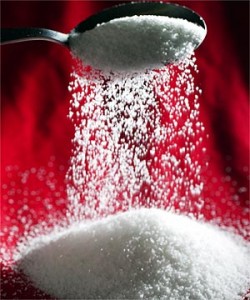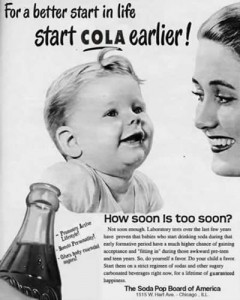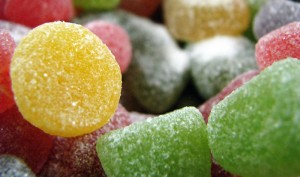 Back in 1987, 70 million Americans consumed products made with artificial sweeteners. By 2000, that number had skyrocketed to more than 160 million. Clearly, the allure of sweet but calorie-free eating is alive and well. But is it all too good to be true?
Back in 1987, 70 million Americans consumed products made with artificial sweeteners. By 2000, that number had skyrocketed to more than 160 million. Clearly, the allure of sweet but calorie-free eating is alive and well. But is it all too good to be true?
In a surprising study, researchers from Purdue University tell us that artificial sweeteners may, in fact, be a contributing factor to obesity.
Researchers hypothesized that the body learns a relationship between the taste and texture of foods and the number of calories those foods contain. This information is then used by the body to signal hunger, fullness and to regulate the food we consume.
Sweetness, for example, is a signal to the body that calorie-rich food is being consumed. And in a world without artificial sweeteners, this is true; sugar is high in calories. But when you drink a can of diet coke, which is devoid of calories but still very sweet, this calorie-sweetness relationship is broken. Over time, the body will learn that it can’t trust sweetness to gauge calories, and the body loses its ability to regulate food consumption.
The hypothesis was supported by research with rats:
The rats that had experienced the inconsistent relationship between sweet taste and calories were less able to compensate for the calories contained in the snack and ate more than the rats that had experienced the consistent relationship between sweetness and caloric intake.
The same is believed to happen with humans. The body is unable to keep track of the calories we consume, and thus overeating ensues.
Researchers don’t believe that the breakdown of the sweetness-calorie relationship is the cause of obesity. Indeed, the obesity epidemic is far more complicated than that - and reasons can vary from individual to individual. But for a lot of people, it’s believed that artificial sweeteners could be a piece of the puzzle.
This doesn’t mean you should switch from diet beverages or sugar-free products back to the real thing. I think the real takeaway is the importance of eating healthy and nutritional foods - at least, most of the time. Instead of selecting between diet soda and traditional soda, why not opt for some ice water with a splash of lemon?









 Sugar is serious business. And many of us are addicted to the sweet stuff - or at the very least, getting way too much of it.
Sugar is serious business. And many of us are addicted to the sweet stuff - or at the very least, getting way too much of it.
